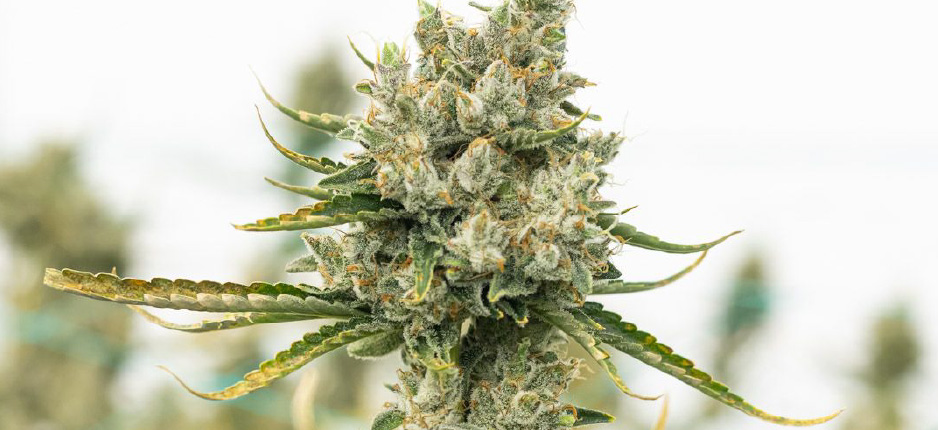Every day, more and more Americans turn to CBD, but there’s one problem: many users don’t know the finer details about cannabidiol, or they have a false impression that all CBD products are the same (or worse, that they don’t work at all.)
In this blog, we’ll explain what full-spectrum CBD oil is and how it differs from CBD extracts and isolates. The vast majority of CBD products contain either full-spectrum or isolate hemp extracts, so understanding the differences between them is key to being an informed consumer. This all might seem a little confusing at first, but their differences are a lot more straightforward once you dig into it.
So, What is Full-Spectrum CBD?
Put simply, full-spectrum CBD is derived from whole-plant hemp extractions. This means that all the phytochemicals found in hemp plants are extracted and then dissolved into an oil. So, by consuming full-spectrum CBD, not only are you consuming CBD, but you're also consuming the other hemp compounds, like flavonoids, terpenes, and other trace cannabinoids.
When compared to CBD isolate, which is when the hemp plant is “isolated” from all the other phytochemicals to create a 99% pure CBD oil extract, full-spectrum CBD includes the compounds mentioned above, while isolates don’t.
What Else is in Full-Spectrum CBD?
Because full-spectrum CBD is derived from the entire hemp plant, you’re getting more than 100 different cannabinoids when you take full-spectrum CBD. For the sake of this article’s length (and your time), we’ll focus on a few that play an important role in the effectiveness of a CBD product:
- Cannabidiol
- Tetrahydrocannabinol
- Cannabigerol
- Cannabinol
Cannabidiol (CBD)
Also known as CBD, cannabidiol is the most abundant compound in the hemp plant. Unlike THC, it won’t make the user experience mental changes, and it’s typically used to promote a functioning system.
Tetrahydrocannabinol (THC)
THC is the second most common cannabinoid in the hemp plant, and the most desired compound in hemp’s sister plant, cannabis. It’s the compound in cannabis that makes people experience mental changes, and the legal distinction between hemp and cannabis plants is the THC content of the plant. Anything with less than .3% THC is defined as hemp; anything more is categorized as cannabis.
Cannabigerol (CBG)
CBG is a non-intoxicating cannabinoid, just like CBD. It’s actually a parent compound of THC and CBD and acts as a precursor to the three main cannabinoid lines. Enzymes in the cannabis plant will break down CBG and convert it into one of these final compounds.
Cannabinol (CBN)
This minor cannabinoid is mildly psychoactive and is currently being studied for its sedative effects. CBN is believed to be the compound that generates a relaxed or sleepy feeling in users.
What’s the Entourage Effect?
The phrase, coined by two Israeli researchers in 1998, refers to the discovery that extracting the entire array of compounds found in hemp plants provides more benefits than isolated CBD. According to the theory, the chemicals derived from whole-plant extraction work in unison in a way that boosts the overall effectiveness of CBD oil.
This was further backed up in 2015 when a study carried out by the Lautenberg Center for General Tumor Immunology found that taking full-spectrum CBD provided more relief from pain and inflammation than purified CBD. Per the results of these two studies, it appears that full-spectrum CBD is, overall, the better choice than an isolate.
Will Full-Spectrum CBD Affect My Mental Capacity?
Although full-spectrum CBD does contain THC, it doesn’t contain enough to make you feel tired. As mentioned above, a plant needs to contain less than .3% THC to be categorized as a hemp plant, and full-spectrum CBD is made from a hemp plant. It’s also extremely unlikely that taking CBD will cause you to fail a drug test. For reference, the average person would need to take over 2,000 mg of CBD with a THC level of .3% to create a false positive on a drug test -- or 10x the average daily dose.
Plus, under the 2018 Farm Bill, hemp-derived CBD oil is federally legal to produce, use, and possess in all 50 states. Of course, some states still have restrictions on who can purchase and use CBD, so always check the laws in your state before purchasing or using CBD.
Full-Spectrum CBD vs. CBD Isolate: Which is Right for Me?
Full-spectrum and CBD isolates have their own advantages over the other, and everyone’s body chemistry works differently, so it’s tough to say which is the better choice for you.
In general, though, and as explained by the Entourage Effect, full-spectrum CBD is the better choice for individuals who want to gain access to the full power of hemp extracts. Patients who suffer from severe medical conditions or who aren’t responding well to isolate CBD oil should also consider making the switch. Now that you know more about full-spectrum CBD check out our cannabis-infused products and top-sellers.




